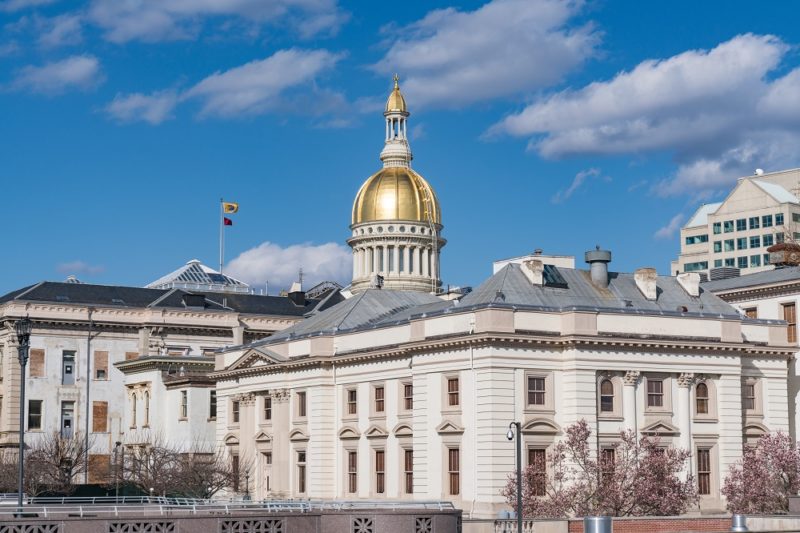The Statehouse in Trenton
By Joshua Burd
A new proposal by state lawmakers would require apartment landlords to set up payment plans with tenants who could not pay rent during the coronavirus crisis, but multifamily industry advocates are raising concerns about the bill’s unintended consequences.

The legislation, A4226, calls for owners to create an addendum to their lease agreements for the repayment of partial or full rent payments not made during New Jersey’s COVID-19 emergency period, which began March 9, and for an additional 60 days after the state of emergency is lifted. Yet the measure includes strict caps on the monthly installments that tenants would pay and imposes other restrictions, which landlords say would hamper their ability to pay their own expenses.
“A4226 in its current form impairs and rewrites existing contracts, forces landlords into multiyear zero interest loans for rent past due and incentivizes tenants to stop paying rent,” said David Brogan, executive director of the New Jersey Apartment Association.
“By incentivizing the nonpayment of rent, net operating income for apartment owners will drop precipitously, which will impact the property taxes paid by those multifamily owners,” he added. “Due to that drop, the taxes that would have otherwise been paid by those multifamily owners will now have to be paid by homeowners. As such, this bill will lead to the biggest property tax shift onto homeowners in New Jersey’s history.”
The proposal, which was heard this week by the Assembly Housing Committee, aims to “avoid mass evictions and widespread homelessness” at the end of the public health emergency. To that end, the bill prohibits all evictions for another 60 days after the emergency period ends, other than those pertaining to health and safety.
It also outlines two repayment plans for past due rent, requiring landlords to use whichever results in the lowest average monthly payment for the tenant. The first option allows for monthly installments, which cannot exceed 10 percent the tenant’s income, to be paid over the remainder of the lease. The second would provide a tenant with six months to repay each months’ rent that was unpaid, whether in full or in part, during the emergency period.
Brogan said the repayment schedules could span multiple years and that landlords will take a major revenue hit as a result of the requirements, while still facing expenses such as property and income taxes, mortgage payments and insurance premiums during an uncertain economic time. He added that the mandates would “bankrupt small landlords (and) severely impact large landlords” in addition to shifting the property tax burden to homeowners.
“Landlords get no relief,” he said. “We all want to prevent mass evictions, but the solution is not this bill.”
Sponsored by Assemblywoman Britnee Timberlake, A4226 also threatens legal action and fines against landlords who notify a collection or credit reporting agency about a tenant’s nonpayment during the emergency period and the ensuing 60 days. Apartment owners are further prohibited from refusing to rent to a tenant or putting a tenant’s name on a list for the use of other landlords because of nonpayment of rent during that period.
Another point of contention? The bill defines “impacted tenant” far too broadly, Brogan said, noting that it applies to any households with $150,000 in yearly income or less. He also pointed to Gov. Phil Murphy’s recently announced program to help low- and moderate-income renters, which requires recipients to certify that they “have a substantial reduction in income or are currently receiving unemployment due to the COVID-19 pandemic.”
“Ironically, the criteria for rental assistance under the new $100 million Emergency Rental Assistance Program, which is geared toward helping economically impacted tenants, is stricter than this bill,” Brogan said. “As such, for public assistance there is one standard and for the private sector, there is another less restrictive standard. That is unfair.”









